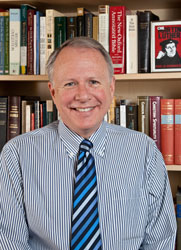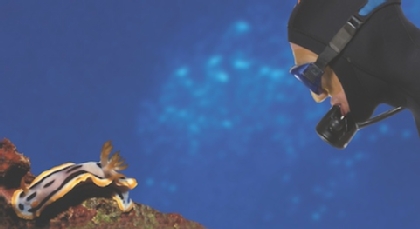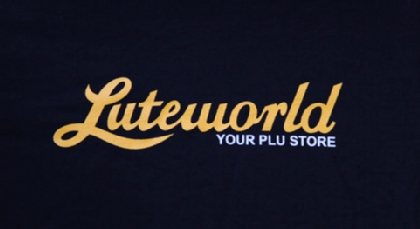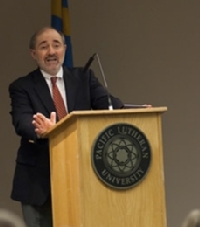Page 298 • (3,614 results in 0.029 seconds)
-
and much more interested in getting down and dirty in the trash (after donning thick leather gloves of course). Comments before the sort ranged from “I don’t like the looks of this lab,” to “eew,” to “Oh great, this is one of my favorites.” The students even learned a few things during the sort. Yes, paper that has been stained by food can be composted. You can recycle milk cartons and potato chip bags. You can’t recycle plastic bottle caps or plastic forks. McConathy also reminded students to
-
March 9, 2009 Sludge from the grill to be recycled The gooey mess which sloughs from the grill at the UC may look like something that you’d rather just toss and forget about. But to Wendy Robins and Colin Clifford, it’s pure gold. Or more specifically, the yellow smelly gunk means that PLU will be paid $100 a year to sell its grease to the Arlington-based Standard Biodiesel, rather than pay a rendering plant $300 a year to get rid of the mess, said Robins, day operations manager for dining
-

competitive market.” After a short pause, Torvend added, “After all, the distinctive part of PLU is its middle name.” Torvend is in a unique place to understand that distinction, as he is the first holder of the new Chair in Lutheran Studies. He is a 1973 graduate in history from PLU. He also received his masters in divinity, his masters in theology and, ultimately, his Ph.D. in historical theology. He returned to PLU in 1998, serving as a professor of the history of Christianity. And since 2007, he has
-
PLU president, spouse rappel down Hotel Murano in downtown Tacoma for first Habitat Challenge fundraiser Posted by: Kari Plog / October 4, 2016 October 4, 2016 By Kari Plog '11PLU Marketing & CommunicationsTACOMA, WASH. (Oct. 4, 2016)- Pacific Lutheran University’s partnership with the local Habitat for Humanity took an exciting leap forward — or down, rather — last week. President Tom Krise and his wife, Patty, participated in the Habitat Challenge for Tacoma/Pierce County Habitat for Humanity
-

From Opportunity to Opry Posted by: Mandi LeCompte / June 8, 2015 June 8, 2015 By Matthew Salzano '18PLU Marketing & CommunicationsDeanna Fallin ’09 wrote an email on April 8 to her former faculty adviser, Pacific Lutheran University Chair of Art and Design JP Avila, to share some exciting news. “It’s crazy to think that I was just some young college kid, sitting in your office, trying not to cry over a recent breakup,” she wrote. “Look at me now! It’s so exciting!” Originally from Burien, Wash
-
September 15, 2008 Care for the earth It all started because of the health department. A year ago, when the University Center closed down for its remodel, Dining and Culinary Services had to find a new place to feed the majority of the university’s students. They moved to the Columbia Center. That space, however, could not accommodate a commercial dishwasher, so meals were served on paper plates to alleviate health department concerns. But what to do with all that paper? Contaminated paper
-

July 23, 2009 One-on-one: Behrens By Barb Clements Being a marine biologist is a pretty good gig. And why wouldn’t it be? There are obvious perks, Michael Behrens admits, to having a job where diving is part of the package. Seeing creatures swim by as they hunt for food in the Galopagos is a nice benefit, as well as diving in the rocky shoals of Washington state, which he counts as among the most beautiful places on earth. For PLU Assistant Professor of Biology Michael Behrens diving gives him
-

supplies, office supplies, children’s toys, games for adults and, of course, books. But those will be easier to browse through too, Dopp said. Rather than just a mishmash of products, different boutiques or departments can be found throughout the store. Looking things for children from books to games, go to the children’s section. “We wanted to bring it all together to make it easier for all our customers to shop,” she said. The Fair Trade Shop has become the Scandinavian Shop, but the Fair Trade items
-

, October 3, at the 7th Annual Dale E. Benson Lecture in Business and Economic History. The lectureship, which was established by the Benson Family Foundation during the 2005-2006 academic year, brings to campus outstanding members of the academic and business community. The topic for the night’s lecture came from a debate Coclanis had with economic historian Stanley Engerman in November 2009. In both debates he argued that based on economic reasoning slavery would not have survived much longer without
-

and French, began her initial research in 2013 with a paper she wrote in one of her classes. This blossomed into Moran’s final Capstone, PLU’s senior research project, which looks at how candidates’ expenditures affect the outcome of their campaign. “There is a lot of controversy about the money spent in politics,” said Moran. “I really wanted to look at an issue that is highly debated. It’s hard because you want your causes to succeed, and you know the only way to do that is with money.” Moran
Do you have any feedback for us? If so, feel free to use our Feedback Form.


